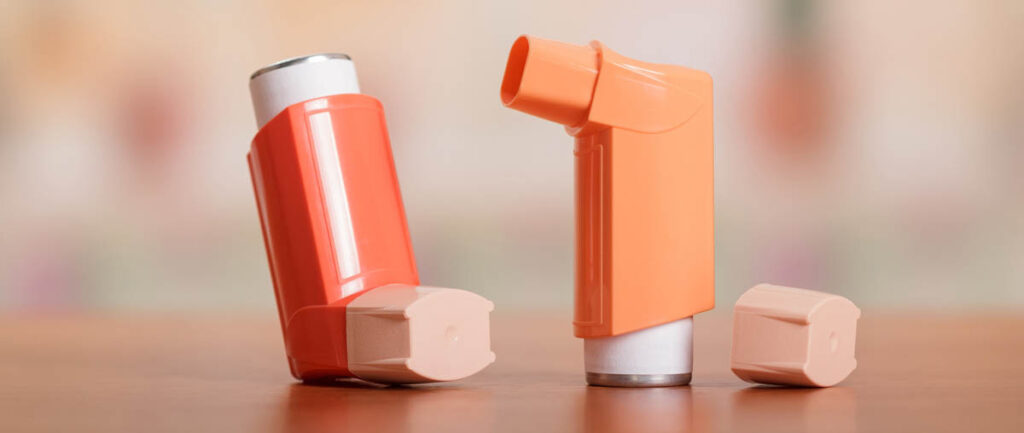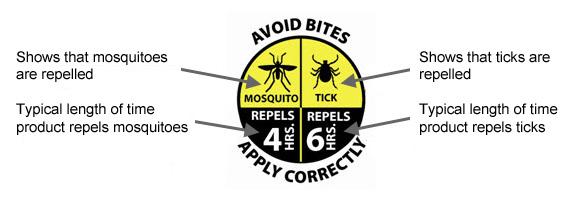Local weather data shows the average daily temperature is on the rise, creating a perfect breeding ground for mosquitoes and ticks. Levels of pollen and mold are also rising, exacerbating asthma and allergies.
Protect yourself — learn about the top three health-related impacts of climate change in our region: heat-related illnesses, asthma & allergies, and mosquitoes & ticks.

Heat-related illness
It’s not your imagination – our temperatures are soaring. In fact, the average annual temperature in Mercer County has increased by over 3 degrees Fahrenheit during the past century.
Heat-related illnesses arise when the body becomes unable to cool itself. This is largely preventable — here’s how:
- Hydrate. Carry a reusable water bottle, drink plenty of fluids.
- Stay cool. Find shade or air conditioning during peak heat hours.
- Avoid strenuous activity outside. Go for a swim or visit an indoor gym.
- Dress for the weather. Light, loose-fitting clothes help cool your body.
- Never leave people or pets in a closed car. Even a few minutes in a non-air-conditioned car can be extremely hazardous on warm days.
- Check on your neighbors. During a heatwave, the elderly, young, and overweight are the most vulnerable. Learn more about the Neighborhood Buddy Initiative.
- Watch for signs of heat illness. Heavy sweating, fast pulse. Review the CDC list of symptoms for heat cramps, exhaustion, stroke or rash.
- Keep it cool. Cool your house naturally by closing your blinds during the day, and opening your windows on cool nights.
- Be informed. Stay up-to-date on locations and time frames for the municipality’s cooling locations by registering for alerts.

Asthma & allergies.
Increasing levels of mold, pollen, and air pollution worsen allergies and asthma for some, and bring new illnesses to others. Consider each of the following methods to breathe a little easier:
- When walking or biking, pick your route carefully. There can be stark differences in air quality from one block to the next, so stay clear of busy roads or idling hotspots.
- Know the local air quality. Use a website like AirNow to track the AQI (air quality index) for your routes. Pollen and mold levels can also be assessed through the National Allergy Bureau™ webpage. For the worst pollution or allergy days, simply stay indoors.
- Prevent mold. Avoid damp indoor environments where mold thrives, employing fans, air conditioners or dehumidifiers as necessary to dry your home.
- Use filters. Regularly check and clean air conditioner filters. Consider a properly-rated HVAC filter or portable air cleaner to improve air quality.

Mosquitoes & ticks
The incidence of mosquito and tick-related diseases is rising in New Jersey, but there are ways you can try to protect yourself from these illnesses.
- Cover up. Wear clothing that covers a large portion of your skin.
- Apply EPA-registered repellents. To find a repellant, use EPA’s repellant search tool or look for the “Avoid Bites, Apply Correctly” logo. Be sure to follow instructions and reapply as indicated.
- Treat your gear. Permethrin sprays can be used to treat clothing, boots, and camping gear (but not your skin) and remain protective through several washings.
- Check for ticks. After your outdoor adventure, check for ticks on your skin, pets, clothes, and bags. If you find one, follow the CDC recommendation for removal.
- Standing water. Mosquitos breed in standing water. Check items such as flower pot saucers, pet water bowls, and garden buckets to remove standing water from your property at least once a week.

Did you know?
- Asthma & allergies: The burning of fossil fuels along with climate change — increasing precipitation, rising temperatures, and lengthening growing seasons — have serious implications for our health.
- Heat-related illnesses: These preventable illnesses are some of the deadliest weather-related illnesses in the US.
- Mosquitos & ticks: From 2004 to 2016, the CDC observed a 3x increase in the prevalence of diseases from mosquito, tick and flea bites. In New Jersey, over 1,900 disease cases from mosquitos and over 50,000 disease cases from ticks were reported in the same time period.




